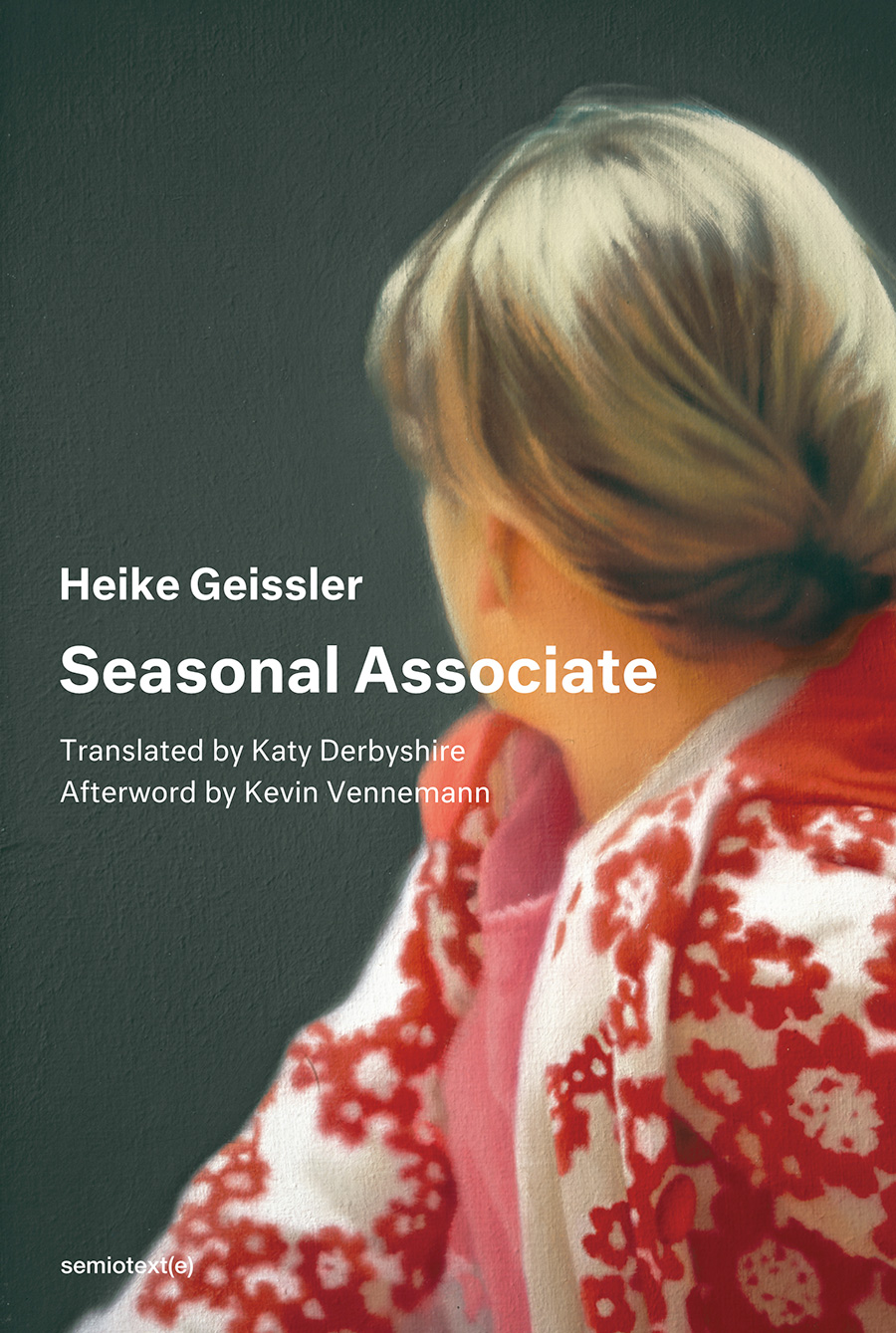‘A Voice No One Wants to Hear’: Confessions of an Amazon Employee
A newly-translated book by Heike Geissler chronicles the life of a warehouse worker
A newly-translated book by Heike Geissler chronicles the life of a warehouse worker

In the run-up to Christmas in 2010, with her earnings slumping in spite of the critical success of her books, the German writer Heike Geissler took a job processing gift orders at an Amazon warehouse in Leipzig. Amidst the exhaustion and repetition of her shifts, Geissler took notes on Post-its, which she began turning into a work of non-fiction in the evenings. It might have been a book comparable to Florence Aubenas’s account of precarious, low-paid work, The Night Cleaner (2011), but it reproduced the boring drudgery of Geissler’s experience slightly too well, and five publishers rejected it.
In 2013, having loosened her story into something less journalistic, Geissler began releasing it online as free, chapter-by-chapter audio recordings. The magazine EDIT then published the excerpts as individual texts, and the whole came out with Spector Books in 2014. Kevin Vennemann, the German translator of Chris Kraus’s I Love Dick (1997), recommended it to Kraus’s own Semiotext(e) press, who hired Katy Derbyshire to translate it into English.

Derbyshire has an eye for rewardingly complex life-writing in German: her version of Angela Steidele’s Gentleman Jack, a biography of Anne Lister, was published in English in 2018. Kraus, meanwhile, has become famous for a brand of writing that takes autobiography as a foundation and supplements it with an (often extremely spare) novelistic superstructure. In 2016, I Love Dick was serialized by Amazon TV, while Kraus’s 2017 biography of Kathy Acker inspired Olivia Laing’s ‘autofictional’ bestseller, Crudo (2018).
Grammar becomes hypersensitive in non-fiction works of witness. The ‘I’ experiencing the conditions being reported stands in for a broader ‘they’ and, in some cases, maybe even a ‘we’. Geissler’s main novelistic innovation is to switch between an authorial ‘I’, associated with her own experience, and a ‘you’. At times, it reminds us that, if we have not worked in such a warehouse, we have probably bought weirdly intimate things from Amazon, and this work is happening on our account. At others, it seems to reflect the speaker having an out-of-body experience and feeling like a dehumanized ‘tool gifted with a voice no one wants to hear’. As she goes on, Geissler gradually destabilizes whatever formula there is. At one point, the ‘I’ mentions her boyfriend and children, before telling the ‘you’ that ‘I’m not going to share them’: ‘You’re me, but you don’t have my entire life’.

The novel’s German title, Saisonarbeit, neatly describes both the book itself and the period of casual labour it entailed: ‘seasonal work’. Derbyshire’s translation opts for Seasonal Associate, the job title Geissler was given by Amazon. It’s a classic of gig economy language: taking the terminology we might associate with a worker on a factory floor and replacing it with something implying more entrepreneurial autonomy. (It doesn’t sound so distant from the role of the freelance writer.) The ‘I’ gets a shock when she comes across a pile of books by a literary acquaintance that are being packaged: ‘it was as if I were the chambermaid and he were the guest’.
The image suggests that much older class structures are the only way to understand being ‘a placeholder for machines that have already been invented but aren’t yet profitable enough to permanently replace you and your workmates.’ Geissler describes chapped hands covered in plasters, sexual harassment, and a state of permanent cold. As the corporate language and the boredom blend and seep into non-working hours and into her prose, she makes the work seem utterly inescapable. Ultimately, the fictional artifice and the flourishes of a sardonic humour lift it just enough. The bleakest of these jokes might be the implicit realisation that such success now means that Geissler is now the ‘guest’, her book on Amazon for some other ‘chambermaid’ to process.
The cover of Saisonarbeit features a white shopping trolley against a plain brown background. That of Seasonal Associate does a better job of summing up the book, with Gerhard Richter’s famous Betty (1988), in which the figure of Richter’s daughter turns away from the viewer towards one of his grey abstracts. There is an analogy between Richter’s method of painting from photographs and the refractive, fictional surface that Geissler lays over the documentation of her experience. But the gesture also matches Seasonal Associate’s mixture of minute detailed exactitude and teasingly refused disclosure. I look away, leaving you to enjoy your purchase.





















